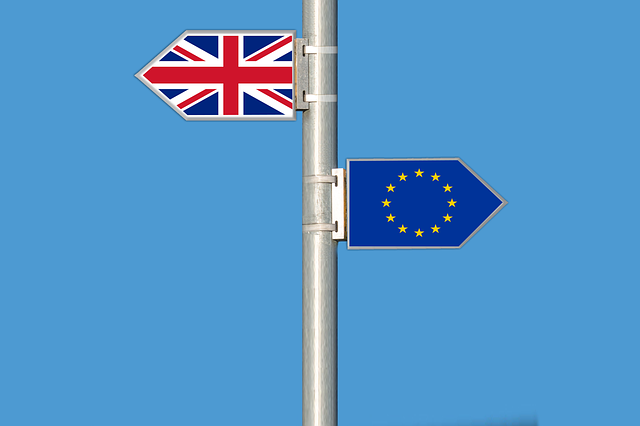Do I really want to buy this service?
 Nowadays the people can easily fulfil their wishes via various online platforms, websites just in a few seconds. But the more the technology progresses the more questions will arise whether we are able to purchase services safely or we are the victims of shady manipulation tactics which are intended to influence us and which the average consumer hasn’t got much chance to recognize on his own. Algorithms provide personalised services, and, in this context, comfort functions tailored to consumer needs. Moreover, data-driven technologies enable businesses to micro-target consumers with advertising and personalised offers, monitor competitors’ prices more easily and this comfort may give the people false sense of safety. In this essay I will talk about the importance of recognizing the dark patterns and how they are being used in the practice. Read more… (Dominik Boros)
Nowadays the people can easily fulfil their wishes via various online platforms, websites just in a few seconds. But the more the technology progresses the more questions will arise whether we are able to purchase services safely or we are the victims of shady manipulation tactics which are intended to influence us and which the average consumer hasn’t got much chance to recognize on his own. Algorithms provide personalised services, and, in this context, comfort functions tailored to consumer needs. Moreover, data-driven technologies enable businesses to micro-target consumers with advertising and personalised offers, monitor competitors’ prices more easily and this comfort may give the people false sense of safety. In this essay I will talk about the importance of recognizing the dark patterns and how they are being used in the practice. Read more… (Dominik Boros)


 Offshore companies play an exceptionally important role in the macroeconomy. As a result of the recently emerging scandals (Panama papers, Pandora papers) now they could face more attention than ever before. Despite the commonly regarded negative sense of macroeconomy, it is undeniable that it has many positive effects, especially in terms of tax optimisation, or encouraging investment. It is important to note, that offshore companies raise several questions and concepts, which require further elaboration: such as their legal regulation, the term of tax avoidance, and the blacklist (the list of non-cooperative EU countries from a tax point of view).
Offshore companies play an exceptionally important role in the macroeconomy. As a result of the recently emerging scandals (Panama papers, Pandora papers) now they could face more attention than ever before. Despite the commonly regarded negative sense of macroeconomy, it is undeniable that it has many positive effects, especially in terms of tax optimisation, or encouraging investment. It is important to note, that offshore companies raise several questions and concepts, which require further elaboration: such as their legal regulation, the term of tax avoidance, and the blacklist (the list of non-cooperative EU countries from a tax point of view). 
 Hungary, too, has accepted the proposal made by the OECD regarding the global minimum tax, which is planned to apply to the taxation of profits of larger multinational companies from 2023 onwards. The goal of the framework signed by 136 countries in Paris is to introduce a universal (minimum) 15% tax for companies with group-wide revenues exceeding 750 million USD. From the beginning, the supporters focused on the fiscal aspects, meanwhile the opposers considered the long-time investment more important. A consensus regarding the framework has been achieved, and while the detailed rules are still being developed, the advantages and disadvantages of the proposal are already clearly visible.
Hungary, too, has accepted the proposal made by the OECD regarding the global minimum tax, which is planned to apply to the taxation of profits of larger multinational companies from 2023 onwards. The goal of the framework signed by 136 countries in Paris is to introduce a universal (minimum) 15% tax for companies with group-wide revenues exceeding 750 million USD. From the beginning, the supporters focused on the fiscal aspects, meanwhile the opposers considered the long-time investment more important. A consensus regarding the framework has been achieved, and while the detailed rules are still being developed, the advantages and disadvantages of the proposal are already clearly visible. 
 Many things have changed in the global economy over the last 40 years. The trade of goods used to be carried out through relatively controllable and predictable routes, so the market surveillance measures, institutions and powers that could form the foundations of an efficient system are now not necessarily capable of providing the same high level of consumer safety. Rules created in the context of identifiable manufacturers, distributors established in the internal market, physical shops and markets are no longer suitable for facing the market surveillance challenges of the online market.
Many things have changed in the global economy over the last 40 years. The trade of goods used to be carried out through relatively controllable and predictable routes, so the market surveillance measures, institutions and powers that could form the foundations of an efficient system are now not necessarily capable of providing the same high level of consumer safety. Rules created in the context of identifiable manufacturers, distributors established in the internal market, physical shops and markets are no longer suitable for facing the market surveillance challenges of the online market. 
 The dispute settlement mechanism between investors and states provided for by the free trade agreement between the EU and Canada (Comprehensive Economic and Trade Agreement, CETA) is compatible with EU law, the Advocate General of the European Court of Justice (ECJ) concluded on Tuesday (29 January), dismissing previous concerns. The agreement does not adversely affect the autonomy of EU law and does not affect the principle that the ECJ has exclusive jurisdiction over the definitive interpretation of EU law.
The dispute settlement mechanism between investors and states provided for by the free trade agreement between the EU and Canada (Comprehensive Economic and Trade Agreement, CETA) is compatible with EU law, the Advocate General of the European Court of Justice (ECJ) concluded on Tuesday (29 January), dismissing previous concerns. The agreement does not adversely affect the autonomy of EU law and does not affect the principle that the ECJ has exclusive jurisdiction over the definitive interpretation of EU law. 
 This article focuses on one of the most essential challenges for the European Union – Brexit, a process in motion since June 2016 and still shrouded in uncertainty. It is predicted that the UK will leave the European Union on March 29, 2019. However, no one knows yet how and by what conditions this “divorce” shall take place, and even whether it is truly inevitable:
This article focuses on one of the most essential challenges for the European Union – Brexit, a process in motion since June 2016 and still shrouded in uncertainty. It is predicted that the UK will leave the European Union on March 29, 2019. However, no one knows yet how and by what conditions this “divorce” shall take place, and even whether it is truly inevitable: 
 International Commercial Arbitration is an essential alternate mode of dispute resolution accompanied by the gradual liberalization of national arbitration laws in international trade. The following contribution aims to analyze the impact of Brexit on International Commercial Arbitration and how it will affect enforcement of awards. The jurisdiction clauses designating English courts and parallel proceedings with English courts are expected to raise intricate legal questions subject to many uncertainties subsequent to an effective Brexit.
International Commercial Arbitration is an essential alternate mode of dispute resolution accompanied by the gradual liberalization of national arbitration laws in international trade. The following contribution aims to analyze the impact of Brexit on International Commercial Arbitration and how it will affect enforcement of awards. The jurisdiction clauses designating English courts and parallel proceedings with English courts are expected to raise intricate legal questions subject to many uncertainties subsequent to an effective Brexit. 
 For approximately twenty-five years, Belarus and the EU have been faced with plenty of challenges throughout the number of attempts to establish a solid ground for building the stable bilateral relations. Being one of the countries neighbouring the EU, Belarus has commonly been assumed as the key actor in reducing tensions in the region, associated with the ongoing conflict in Ukraine. As the result, Belarus’s efforts towards maintaining the stability in the Eurasian region have considerably altered the EU strategy towards this country.
For approximately twenty-five years, Belarus and the EU have been faced with plenty of challenges throughout the number of attempts to establish a solid ground for building the stable bilateral relations. Being one of the countries neighbouring the EU, Belarus has commonly been assumed as the key actor in reducing tensions in the region, associated with the ongoing conflict in Ukraine. As the result, Belarus’s efforts towards maintaining the stability in the Eurasian region have considerably altered the EU strategy towards this country.